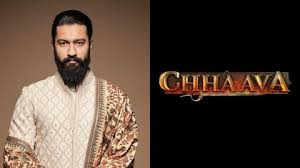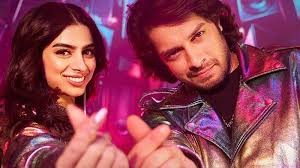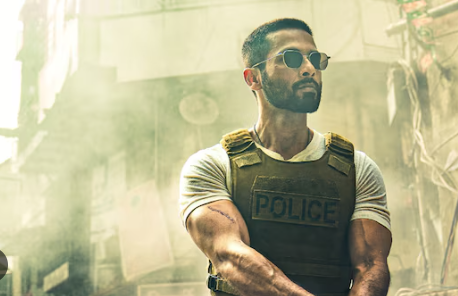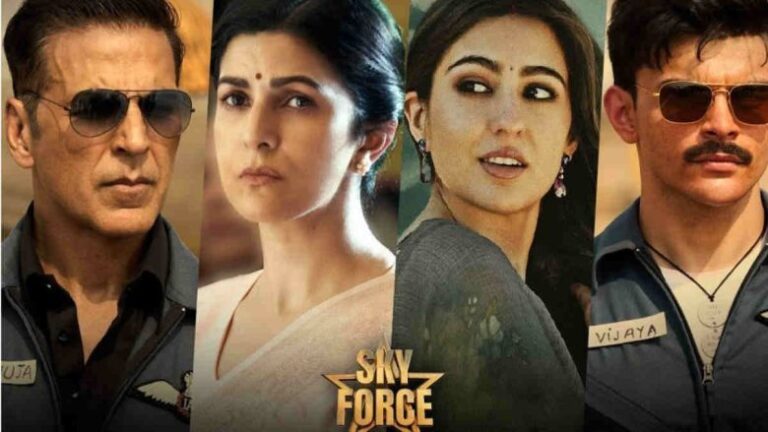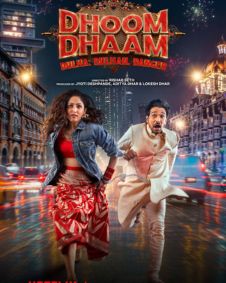A Roaring Spectacle of Valor and Betrayal
Some films don’t just tell a story—they make you feel it in your bones. Chhaava is one such film. A celebration of fire, fury, and undying resilience, this historical spectacle doesn’t just recount history; it drags you into the battlefield, makes your heart pound with anticipation, and leaves you with goosebumps. Director Laxman Utekar crafts a grand cinematic experience that, while not flawless, is deeply immersive and oddly satisfying.
A Story That Demands to Be Told
Chhatrapati Shivaji Maharaj’s passing left the Maratha Empire vulnerable, but what the Mughals didn’t foresee was the rise of an even fiercer warrior—his son, Chhatrapati Sambhaji Maharaj. Chhaava, based on Shivaji Sawant’s celebrated novel, goes beyond the text of history books to reveal the man, not just the legend. It vividly portrays his fearless nine-year reign, his breathtaking ambush on Burhanpur, and the heartbreaking betrayal that led to his gruesome execution at the hands of Aurangzeb. Yet, even in death, his spirit remained unconquered.
A Visual and Emotional Feast
Utekar paints this tale on a colossal canvas, drenching every frame in grandeur. The battle sequences are meticulously choreographed, pulsating with raw energy, and the cinematography is breathtaking. The first half, however, stumbles slightly—it revels in spectacle but lacks narrative tension. Instead of pulling us deeper into the story, it occasionally meanders, feeling like an extravagant display rather than a gripping journey.
AR Rahman’s music, while ambitious, is a mixed bag. Aaya Re Toofan is a spine-tingling war anthem, but other tracks feel misplaced, struggling to blend with the historical backdrop. A traditional Ajay-Atul score might have been a better match, lending the film the earthy, anthemic sound it deserves.
Second-Half Magic and a Climax That Leaves You Breathless
Just when you think Chhaava might remain a beautiful yet detached historical drama, the second half sweeps you off your feet. The storytelling sharpens, emotions run high, and the drama becomes impossible to look away from. The climax—Sambhaji Maharaj’s solitary, defiant battle against the Mughal forces—delivers pure cinematic gold. It’s the kind of moment that makes your chest swell with pride and your eyes well up with admiration.
Vicky Kaushal: A Performance for the Ages
The film belongs to Vicky Kaushal, and he devours every scene with a performance so powerful, so searing, that you forget you’re watching a film. He doesn’t just play Sambhaji Maharaj—he becomes him. The fire in his eyes, the beast-like rage in battle, the quiet anguish in moments of betrayal—Kaushal doesn’t act; he lives the role. This is the kind of performance that lingers long after the credits roll.
Akshaye Khanna, as Aurangzeb, is chillingly effective, his steely gaze and measured dialogue delivery adding layers of menace. Vineet Kumar Singh, as Kavi Kalash, is an absolute revelation—his exchanges with Kaushal create some of the most impactful moments in the film.
However, the women in Chhaava deserved better. Divya Dutta, despite her powerful presence, is underutilized. Rashmika Mandanna looks stunning but struggles to nail the linguistic and emotional depth. And Diana Penty? Her role is so minimal, it barely registers.
Final Verdict: A Triumph Despite the Flaws
Chhaava is not a perfect film, but it is a deeply satisfying one. It may stumble in its first half and make some odd musical choices, but when it soars, it soars. Vicky Kaushal delivers a career-defining performance, the battle sequences are unforgettable, and the climax leaves an imprint on your soul. This is historical cinema done right—with passion, power, and sheer visual magnificence. Go watch it. You’ll come out of the theater with your heart racing and your spirit roaring.

